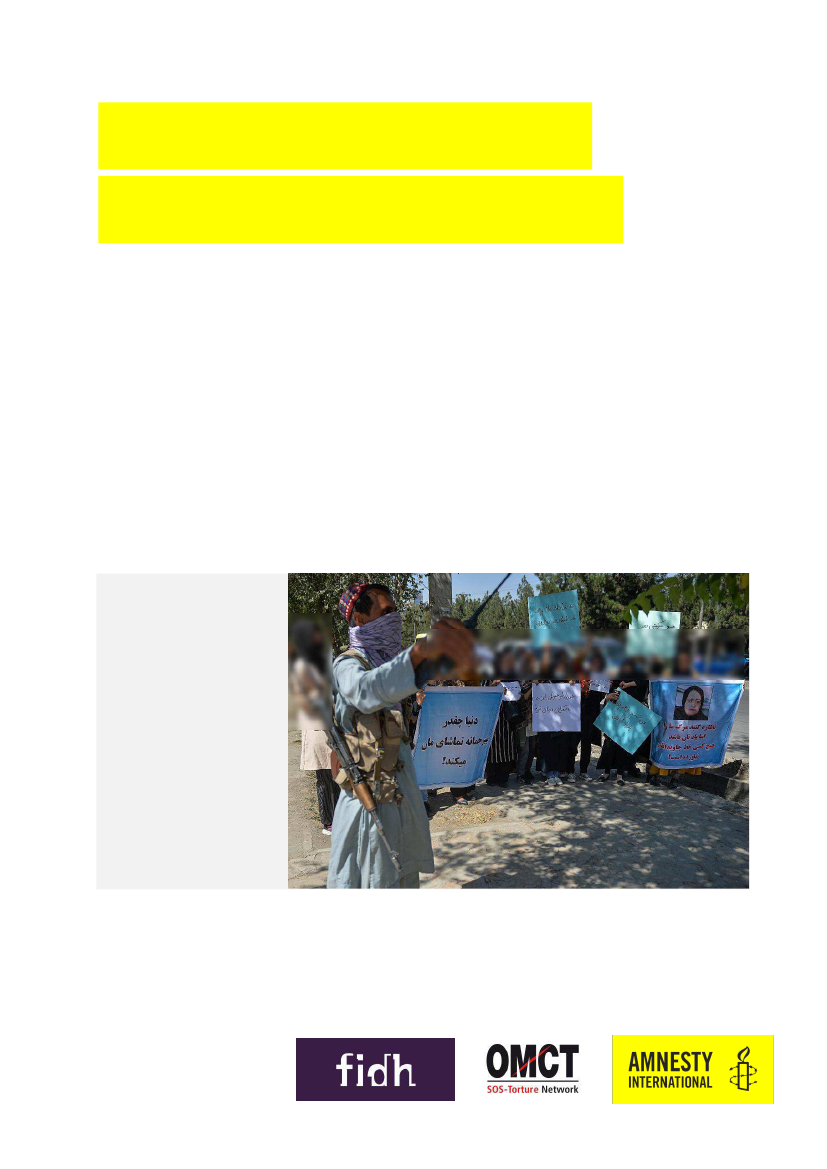
THE FATE OF THOUSANDS
HANGING IN THE BALANCE:
AFGHANISTAN’S FALL INTO
THE HANDS OF THE TALIBAN
The Taliban have attempted to portray to the world that they will respect human rights-
however the ground reality is far from this. This briefing specifically documents the
repression of the rights of women and girls, the intimidation of human rights defenders,
the crackdown on freedom of expression, the reprisals on former government workers as
well as the challenges faced by refugees and those who wish to leave Afghanistan. These
incidents form a litany of abuses that demonstrate the need for an independent
monitoring mechanism in response to the human rights situation in Afghanistan.
A Taliban fighter (L) stands guard
as Afghan women take part in an
anti-Pakistan protest in Kabul on
September 8, 2021. (Photo by
Hoshang Hashimi / AFP) (Photo by
HOSHANG HASHIMI/AFP via Getty
Images)
RESEARCH
BRIEFING